S02 Episode 10: The Chad to Virgin Pipeline
How Hupu shelters rampant misogyny for profit: the contours of China’s basketball fandom + the great fanquan wars + college dorm LARPs + how to stop dudes who rock
In the house this week: Steven, Slowork, Emily, Krish, Tianyu, Yan, and Yi-Ling.
Krish: Hello. Welcome to the second-to-last episode of Chaoyang Trap.
This episode is about the basketball fandom app Hupu, a festering sore of a platform that has become the most reviled corner of the Chinese internet. Its user base—aggressively sexist, desperately horny—is like a Rat King mind-meld of 4chan, Gamergate and incel culture.
Last year, we did a manthropology on the state of Chinese dudes, profiling three public figures who gave us a glimpse into how “masculinity” was being constructed in China. This episode returns to the question of how men find and define themselves online, this time going down the most cursed rabbit hole in existence.
Our guide is Steven Zhao, who asks the biggest question haunting the Chinese web: how did a basketball commentary app end up as a radicalization machine for the worst kind of raging misogyny and homophobia?
[Content Warning: Homophobia, Sexism, Violence]
World’s End No Girlfriend
By Steven Zhao
Steven: I first used Hupu in 2015, the same year I started following the NBA. It seemed that every NBA fan I knew had the app installed, and for good reason: Hupu’s quality of basketball content was unparalleled in China. I spent much of middle school on Hupu memorizing player measurables, reading translated draft analyses and watching play-by-play text updates of games.
Hupu’s play-by-play updates, called wenzizhibo (文字直播) or “text livestreams,” are a thing of beauty. Livestream operators, typing at blindingly fast speeds, infuse a lot of personality into their commentary, peppering them with excessive exclamations and colorful hyperboles. They can be as exciting as actually watching games, especially given how dull Chinese TV commentators tend to be (barring this king).
One of my fondest middle school memories (there are not many) is of huddling with others around someone who had discreetly opened Hupu on his phone. As we shielded him from the prying eyes of our teachers, he relayed to us—via the magic of text livestreams—the latest heroics of LeBron’s Game 7 comeback against the Warriors.
Today, Hupu is no longer an online basketball utopia. A simple search on Baidu or WeChat will reveal how universally reviled it is across the Chinese Internet. It's now famous for coddling a male chauvinist, incel user base. Many of its heaviest detractors are former users who, besides taking issue with the forum’s misogyny, also bemoan Hupu’s drop in quality basketball content.
When did this shift occur? For me, I first noticed the change in 2019, when the then-general manager of Houston Rockets Daryl Morey tweeted in support of the Hong Kong protests. Hupu’s shift away from sports started much earlier, but nationalism, in particular, made the app pretty intolerable. Basketball had become subsumed, even secondary, under the larger social platform the app’s founders were building: one centered on open, toxic misogyny.

Hupu was first founded in 2004 under the name hoopCHINA, an NBA forum and news platform for Chinese basketball fans. At the time, Chinese basketball fans were primarily concentrated on NBA-ba (NBA吧), the NBA message board on Baidu Tieba. To differentiate itself, hoopCHINA carved out a niche by translating American sports articles available nowhere else, with founder Cheng Hang reportedly sifting through around sixty or seventy news outlets a day for content. The strategy worked, and hoopCHINA quickly built a reputation for quality content, supplanting NBA-ba as China’s premier basketball forum. As hoopCHINA soared in popularity, the website contracted its name to the nonsensical Hupu, while also expanding to include other sports (including e-sports). In 2012, Hupu also released its mobile app, which today is its primary interface.

Alongside all this was the growth of Buxingjie (步行街), or “Pedestrian Street,” the most popular subforum on Hupu. Originally, Buxingjie was simply the largest component of Ganbiya Dalu (甘比亚大陆), literally “The Gambian Continent,” a Hupu section for all things unrelated to sports. Ganbiya Dalu is also a homonym for “The Fucking Pussy Continent,” and in 2017, Hupu rebranded Ganbiya Dalu as Buxingjie, renaming the original Buxingjie to Buxingjie Zhugandao (步行街主干道), or “Pedestrian Street Main Artery.” This is now the most popular section of Hupu, boasting over 3.5 million posts and 11 million followers. In comparison, Shihuhudehuati (湿乎乎的话题, literally “wet topics”), Hupu’s main basketball discussion area, contains less than 1.5 million posts and around 8 million followers.
As Hupu’s non-sports material eclipsed its sports content, the app transformed into a hybrid general social media/forum platform geared towards zhinan (直男), or “straight men”.
Zhinan and its derivative zhinanai (直男癌, or “straight male cancer”) has little to do with heterosexuality, and originally referred to (usually) young, patriarchal, misogynistic men.
Zhinan has largely kept this negative meaning, but it is also used as a neutral term to refer to men who like “stereotypically male” things, such as sports, video games, and jerking off. People outside of Hupu tend to view the app’s users (known as JRs, short for 贱人, but later sanitized as 家人) as the cancerous sort of zhinan, while JRs see themselves as misunderstood victims.
Hupu is today mainly known for being a zhinan safe haven, which is not too surprising: Chinese basketball fandom, like most sports fandom, is dominantly male, and was especially so in the early years of Hupu’s founding, when the NBA had much less mainstream popularity. But despite the importance of basketball towards attracting Hupu’s current community, it is no longer central.
A lot of oxygen is consumed by dumb arguments, most notably from LeBron fans (詹蜜) and LeBron haters (詹黑). Buttons are clunky, loading is slow and the UI feels outdated. It is a lot harder than before to find high quality articles. Team subforums lack the interesting discussions, shitposts or meme stashes that make a good online community. Fantasy (范特西), a simple but still enjoyable version of American fantasy sports, has been removed as a minigame from Hupu to become its own app. The matchday text livestreams, unchanged since my school days, remain the app’s best surviving corner.

While basketball regressed, Hupu as a safe space for zhinan flourished, which means it slowly became unusable to anyone outside of this core demographic. Essentially, the app LARPs as a boys college dorm (this is literally how it is advertised) where zhinan are free to be zhinan, post on whatever topic they desire and shoot the shit with each other. In practice, this means that vile homophobia, nationalism, racism and other right-wing isms often appear on the app unmoderated and upvoted:
(content warning: homophobia)
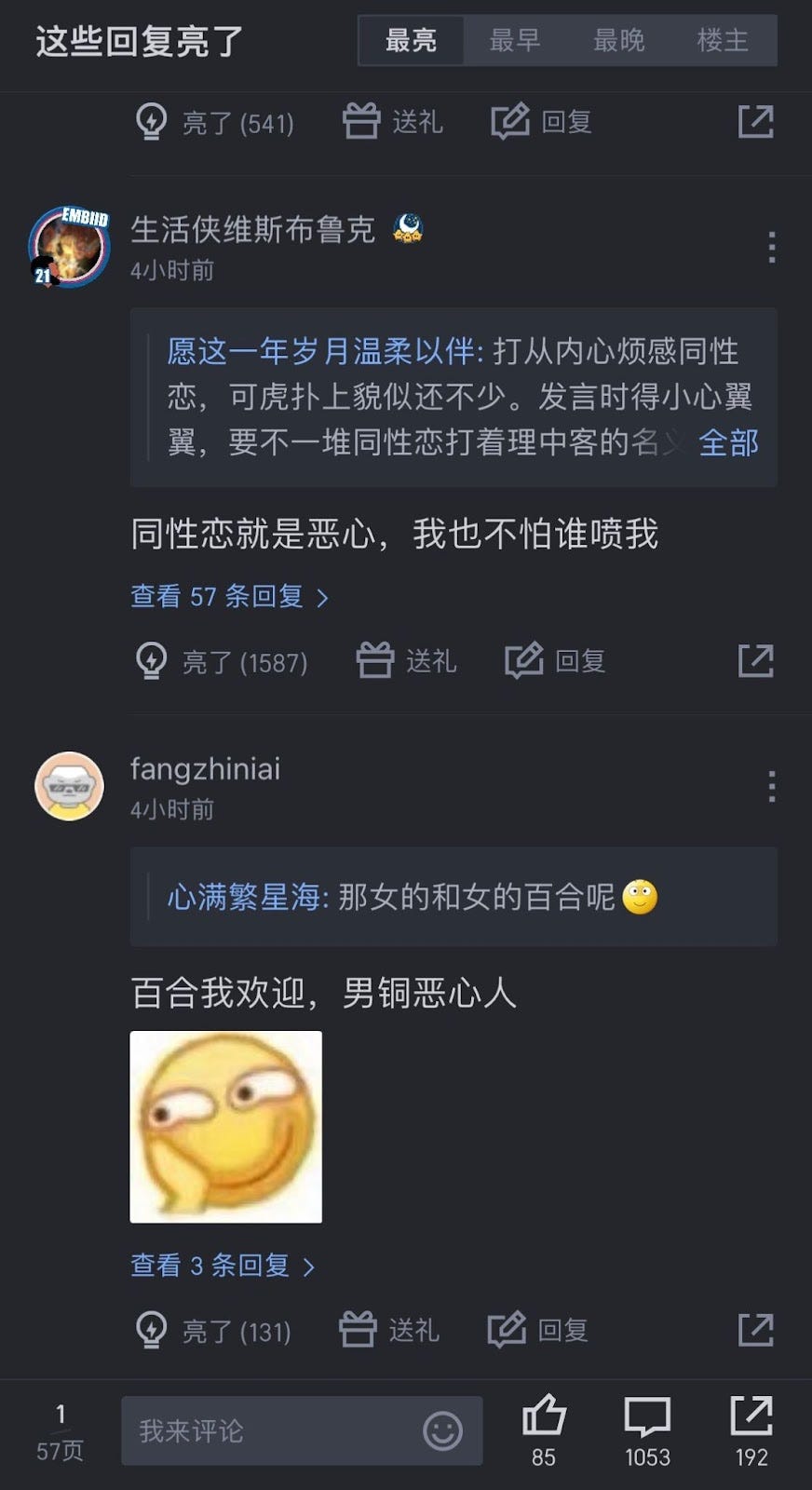
Yan: Just want to point out here that the NBA gained major popularity in China in the 2000s after Yao Ming was drafted as No.1 Pick by the Houston Rockets. The sports channel of the Central Television Station prioritized all Rockets games, and people watched them with a sense of national pride. It’s ironic that the same team that helped the NBA expand into China also led to its downfall in 2019.
Yi-Ling: I feel like the mainstreamification of the nationalist stan (and the first appearance of the so-called “Little Pink”) began in 2016, so it took a bit of a lag period for them to wind their way into sports. Like Steven says, the 2019 Hong Kong protests seem to be the nationalist turning point for a lot of more benign cultural spheres. (i.e. hip-hop).
Steven: Yes, and it’s especially strange in Hupu, considering that the forum revolves around a foreign sports league. Anecdotally, nationalism appears more in the form of deriding other countries rather than explicit flag-waving. It also tends to peak in spurts, like during the Hong Kong protests or the Olympics, but the misogyny is constant.
While many Chinese online spaces are hate-ridden cesspools, what differentiates Hupu is its overwhelming “incel vibes.” The app is full of misogynists, horny desperate nice guys, and misogynistic horny desperate nice guys. To use Hupu is to feel that women are somehow simultaneously absent yet omnipresent. Of Hupu’s 70 million users, only around 10% are women, yet a disproportionate number of the forum’s posts are celebrity photos or thirst traps, feeding a voyeuristic obsession with women’s bodies:
Sometimes, just numbers are enough for horny Hupu men:

Hupu posts featuring women are subject to obsequious simping, accusations of Photoshop, body shaming, slut shaming and sexual innuendos, sometimes all at once. Perhaps the best example of the mercurial nature of JRs is in the rise and fall of “Ice Cream Sister.” Ice Cream Sister shot to fame in August 2020 after posting pictures of herself on Hupu’s Buxingjie, and soon started using Hupu’s now-defunct video livestream function to receive gifts from her new fans. In September 2020 however, a user posted a photo of what they claimed to be Ice Cream Sister in real life.
Infuriated over the difference in appearance and the presence of another man, JRs began harassing Ice Cream Sister, ridiculing her physique and questioning if the man was her husband or boyfriend. By September 20, less than two months after she first went viral, Ice Cream Sister had sent her last post on Hupu.
A major reason behind Hupu’s unfettered objectification of women is the negligence of its struggling parent company, which has been reluctant to alienate its zhinan demographic. Despite investment from ByteDance in 2019, Hupu failed to IPO in 2021—the second time in 5 years—and laid off 40% of its workforce. The startup has no video broadcasting rights over any of the sports it covers, and its zhinan user base is seen as having little purchasing power. As such, investors have repeatedly questioned Hupu’s ability to capitalize on its large number of users and turn a profit.
In response, Hupu has doubled down on catering to zhinan in the most direct of ways: online shopping for dudes. Of the five buttons on Hupu’s bottom navigation bar, one is entirely reserved for accessing e-commerce. Major categories include men’s athletic wear, men’s skincare, anime figurines and alcohol. The success of Hupu’s e-commerce endeavor hinges upon keeping their zhinan JRs, and unsurprisingly, the company has barely bothered to moderate its community.
If anything, Hupu actively contributes to the hyper-objectification of women on its app. Until recently, text livestreams used to send “benefits”, or images of scantily-clad women, during game breaks. More infamously, the company also holds an annual “Goddess Tournament”, where JRs vote and campaign for their favorite Chinese female celebrities in a Word Cup-style competition.
Hupu just wrapped up its seventh Goddess Tournament, with actress Liu Yifei (in her role as Zhao Lingr) declared victor. Over its duration, the contest was easily the app’s most popular topic—even the death of the Queen couldn’t elicit as much discussion. (The company may have artificially propped up the tournament’s popularity with bots.) Again, women were absent yet omnipresent on the website: as far as I know, none of the “participating” celebrities have collaborations with Hupu or consented to the Goddess Tournament, and yet their images have dominated Hupu’s feed over the past weeks.

The Goddess Tournament is especially interesting (and grotesque) because it embodies a corporate-propelled fusion of two polar opposites of the Chinese Internet: zhinan and fanquan (“fan circles”, covered in a previous Chaoyang Trap episode here).
The Hupu community’s various flame wars with Chinese celebrity fandoms are extremely well-documented at this point—see Emily’s comment below—but in the Goddess Tournament, the two subcultures collide to form something completely new.
There is a lot of fandom-like behavior in how users champion for their favorites while attacking rival celebrities, and while this is no doubt in part due to slick, non-Hupu fanquan operations infiltrating to influence polls, many of the most active users have had their accounts for years. Unlike fandom circles however, Goddess Tournament campaigning is conducted in accordance with patriarchal morals. Detractors slam rival contestants for being ugly, fat, old, plastic, etc. but also judge celebrities for their purity: Are they kind, sweet, loyal, untainted, without tattoos and without scandal? The categories that JRs use will become clearer in the coming days when celebrities are forced to face off each other 1v1, but you probably already get the idea: the tournament is a total misogynistic shitshow, combining zhinan morals with fanquan strategies.
Underpinning all of this is capital: the tournament is sponsored by Lynk & Co., a new Chinese-Swedish car brand run by the same company that owns Volvo. Their ads litter the page for the contest—in fact, the full name of this year’s competition is the “Lynk & Co. 7th Goddess Tournament.” Hupu also boosts user engagement (and therefore ad revenue) by allowing JRs to receive an extra vote by making new posts in the tournament’s subforums. Quite explicitly, the company is borrowing a page from entertainment companies. Which makes sense, because ultimately, Hupu is attempting to do the same thing: monetize an online community it has nourished, for better or for worse.
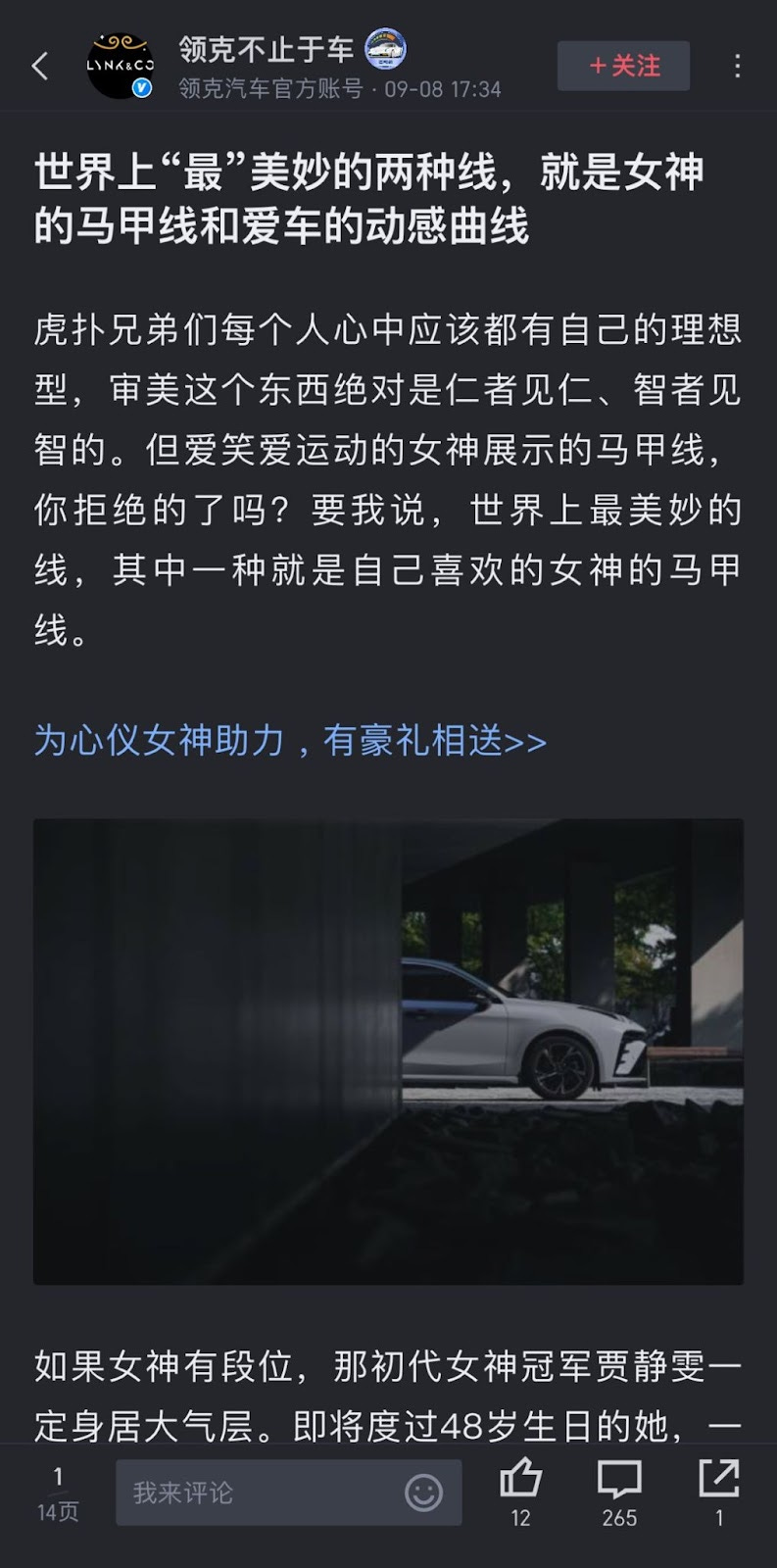
What is different, however, is that the Hupu zhinan community does not revolve around a single marketable, company-controlled entity. In fandoms, the idol or the group reigns supreme. But this is not the case for Hupu, where the only consistent “product” is misogyny. Chinese investors have blamed Hupu’s unprofitability on the stinginess of its demographic, but loser Chinese guys have paid for anime idols and cam girls before. Rather, the larger issue is that there is no singular icon that JRs fawn over. Sure, sports stars like LeBron and celebrities like Wang Xinling have fans on Hupu, but they also have haters, and Hupu cannot control public figures the way entertainment labels puppeteer their artists.
Emily: Imagine Chinese cyberspace as if it’s Westeros in Game of Thrones. Proud JRs from The House of Hupu would hold up banners that read “benefits are coming” and across the field from them there’d be The House of Douban, led by who JRs call “fan circle bitches” (饭圈母狗) following the motto of “a fan always pays”. With over 76% female users (stats from 2021) and known for housing prominent feminist discussion groups, China’s Reddit-meets-Letterboxd is often viewed by JRs as Hupu’s antithesis. It’s the homebase of everything JRs detest:
Young women not giving a fuck about them, and;
Young women adoring (and spending money on) better-looking, talented and successful young men who they will never be.
Fangirls and JRs scream at each other from their respective platform enclaves whenever the opportunity rises. The former is fully aware of and enraged by the misogynistic slandering of them as irrational, “braindead” lunatics (脑残粉). The latter hides their toxicity by branding themselves as “sports fans” who are of course superior to (male) celebrity fans. Hence JRs are referred to as “Kneeling Basketboys” (跪族篮孩) on Douban and later elsewhere, an elaborate play on words that swaps the character for nobility with a homophone, kneel (贵/跪) and the character for boys with the similar sounding character for basketball (男/篮). This is an especially clever retort in response to “fan circle bitches,” turning the tables by calling JRs out on their equally braindead fanaticism, “kneeling” before prominent NBA players like LeBron James.

In Douban’s daily vernacular, the term is far more loaded. Many have used it to condemn how some JRs continue to “kneel” and support the games after the Morey incident, while fangirls themselves are adamant to boycott idol groups like BTS when similar political controversies occur. Nationalism is leveraged by fangirls to one-up the JRs, but victory cannot be called. Douban experienced the most brutal purification campaign in its history last April, with hundreds of feminist discussion groups disbanded and thousands of posts deleted. Hupu celebrated its 18th birthday with a commemorative article written as if it’s a coming-of-age novel three months ago, detailing milestones of the platform such as “battling fans of Kris Wu (a Chinese rapper and idol).”
Tianyu: 1Point3Acres (一亩三分地), a web forum popular among Chinese immigrant tech workers in America, provides a more frightening parallel to Hupu’s incel culture. Initially started as a discussion board for Chinese STEM graduates to find jobs and secure visas in the US, it later expanded into a Chinese expatriate forum that’s similar to the earlier, now defunct MITBBS; the website’s user base is mostly college-educated men working or looking to work in high-paying tech jobs. 1P3A users are often associated with the stereotype of xiaozhen zuotijia (小镇做题家), or “small town test-takers.” They became good students and got into top colleges—and in this case, immigrated to the US—but test-taking is the only thing they’re good at; coming from humble family backgrounds, the small town test-taker—goes the stereotype—lacks personality, hobbies, or basic social skills.
Similar to Hupu, US-based men on 1P3A embraced incel culture; many began posting about their experiences dating women back in China by leveraging their high income and immigration status. This eventually evolved into the misogynistic discussion of banyun (搬运)—literally “transporting”—women to the US (most often the SF Bay Area) and marrying them by manipulation. On 1P3A, incels—if they can be called that—wrote “tutorials” on how to “filter” women from abroad, get married quickly, and manipulate women to not divorce them after moving to the US. Here’s a rather disturbing example of one of these posts (all of the trigger warnings apply).
Steven: To bring this all together, there is only one entity that Hupu folks all care about: themselves. That is, despite all the bickering on the app, JRs are usually big fans of JRs, and this is what truly drives the Hupu community’s staying power. Much of the app’s most popular content is simply JRs sharing shitty things happening in their lives, with comments a mix of witty wisecracks and sincere empathy, just like any proper group chat with the boys. These viral posts generally relate to romance—unrequited love, not getting over your ex, and most commonly, being cheated on—and are usually written in a stream-of-consciousness, first person narrative format that allows writers to wring out every last drop of angst from their heart.

This genre of posting was first kickstarted in 2012 by a despondent JR named Hu Tingfei, who simply titled his piece “Girlfriend Cheats.” OP begins by talking about his girlfriend, who is vacationing in Qinghai and has been failing to return his calls. One day, she forgets to hang up after talking with him, and OP keeps the call going. He hears her enter a car with a man, and they ask the driver to take them to a hotel. After arriving at the hotel, OP’s girlfriend discovers the call hasn’t ended and hangs up. OP calls her back, but she soon hangs up again and shuts her phone down, refusing to receive any of his calls for the rest of the night. The whole piece is a bit long to translate, but OP’s heartbreaking soliloquy is worth reading:
Change comes in the form of lightning and thunder, exploding like a bullet crashing into the middle of the chest, the blast bringing an instantaneous pressure that spreads from the heart to every single capillary, with all cells ceasing to metabolize or think, carefully listening to the shockwaves of this moment. There is no power that can save the heart, for it will only fall into a deeper part of bottomless darkness.
This is an irreversible process, and even if change were to happen like the seas turning into farmland, or so much time was to pass that the oceans dried out and the rocks rotted away, even if I were to find love that could persist through life and death and was eternal like the mountains and the seas, none of this can fix what was before, none of this can smoothen off the past, this huge gash gapes like the East African Rift, even if violent winds were to blow for ten thousand years, even if frost were to freeze over for a glacial period, even if rain and snow were to flow for a geological epoch, you would see that this rift is still steadfastly wedged into the surface of the Earth’s crust.
Hu Tingfei’s prose garnered widespread acclaim and sympathy on Hupu, spurring other JRs to spill their worst romantic misfortunes. You can read a lot of them in this Zhihu thread, although it is by no means comprehensive.
From these melancholic posts, it’s easy to tell that there is real camaraderie among JRs, a sense that if you, as a zhinan, are struggling in life, the other Hupu guys will have your back, because dudes understand dudes like no one else. But more than that, I think that the preponderance of sang (funereal) user-generated content hints at a fundamental truth about Hupu: a lot of users really fucking hate themselves, driving both the chauvinism and comradeship of Hupu. When I first browsed through the Goddess Tournament, it felt to me that a lot of users were spewing abuse to assert a sense of superiority over women that they could never find in their incel realities—a suspicion confirmed by sifting through countless, hugely popular, stories of JRs failing to find love.

By and large, it feels like JRs are dominantly young, depressed, self-loathing, lonely and unloved Chinese men who are acutely aware of their beleaguered status. This doesn’t excuse Hupu users’ misogyny—many depressed men are not raging sexists—but neither is it surprising that they would congregate to form a reactionary community where all mens’ prejudices and struggles are validated. A Hupu post from the aforementioned Zhihu thread perhaps best encapsulates the struggles and beliefs of the average JR:
I don’t want to love anymore; when I walk on the road [and see passersby], it feels like anyone pretty has nothing to do with me, I don’t even dare to look at them too much. But I also can’t like girls who aren’t attractive; even though I have little going for me, I don’t want to settle for less either.
I have no money, I don’t even have enough living allowance for my own sustenance; if I had a girlfriend and didn’t want to get blasted on a Zhihu thread named something like “What kind of zhinan presents have you received before?”, I’d have to at least send something that I’ve heard of before, like SK-II’s godly water [popular name for a skincare product], an ex-boyfriend face mask [internet slang for face masks so good they make your ex jealous], a Givenchy lambskin lipstick, but even these played out things would cost me between 10 days to a month’s worth of food money. Importantly, there are a lot of these random holidays [where sending gifts is expected]. The money I make working during school break isn’t enough for two holidays…
I am a piece of trash, I don’t even know what I can do when I graduate from university, what kind of job I can get. I feel like living is already very tiring, and I already don’t have enough energy to care for another person.
I can procrastinate now, but I don’t know how to live my later life…
…So even if a woman to my liking were to profess that she liked me, I would still reject her; every aforementioned point is warning me that I cannot be in a relationship. Otherwise, it would be irresponsible to both myself and her.
I think that given the way I am, I’ll probably find a girl that I don’t dislike at an age late for marrying and make do. When it comes to love and all that stuff, I am not worthy.
This kind of bleak, masochistic self-hate is rare among incels, where sex is more often seen as a “right.” It stems from the unique conditions of China’s crisis of social reproduction, in which state and cultural expectations of procreation collide with a massive gender imbalance and neoliberal decay. The three-child policy, familial hope for grandchildren, a lack of women and stagnant wages on 996 hours all collapse onto each other to mold the defeatist psyche of JRs. In a sense then, despite being reviled by much of the Chinese internet, Hupu is very similar to many other Chinese digital communities. Like other subcultures, members flock together because it’s a hell a lot better than facing modern society all alone, and I’d much rather post my misery for others instead of wallowing in it by myself.

What differentiates Hupu, however, is that its users are uninterested in creating a utopia where these societal burdens do not exist. JR escapism is not about constructing a heaven where people are free from bride prices, overtime, and astronomical rent, but is rather about building a hell where only cishet Han Chinese mens’ grievances matter and are amplified.
In the world of Hupu, all zhinan are valid and deserve to be respected, cherished and empathized with, while women are decidedly submissive, existing only abstractly as objects of lust or shame. The days of Hupu the basketball forum are long gone, with only its mutated remains persisting to this day.

Emily: I want to name-drop a few of JRs’ favorite goddesses in the past years. Gao Yuanyuan, an actress famous for her sweet and benign appearance who hasn’t ended her marriage despite her husband’s cheating scandals; Tong Liya, another stunning actress with a possibly abusive, emotionally unstable and unsurprisingly disloyal husband; and Li Qin as well as Liu Yifei, both actresses with well-known looks of “purity” and absences from tabloid gossips because they never (publicly) date. An arch-enemy of JRs, Yang Li (who JRs used fandom tactics to attack online, by the way), is a smart, educated female stand-up comedian, making jokes about mansplaining and receiving death threats because of it.
JRs only like women they can imaginatively control. Tolerant, chaste, quiet, and desirable. Women have to make every loser feel like they can win through controlling her. As Steven said, JRs only care about themselves and an individual sense of control. The singular icon that all Hupu folks fawn over is patriarchal power. It would be hard to sell electric cars to men who are already grieving their lack of power and control over others or their own lives. Goddesses only remind them that God is dead and they might die on a treadmill too.
Krish: Outro Music this week is the new album from electro pop group Aero-Boat (空气船). It’s the latest vibes delivery service for veteran indie vocalist Zhan Pan, best known for fronting a beloved noise pop band called The Gar.
I’m fascinated by Zhan Pan’s legacy and influence as an indie vocalist. He was the rare melodic singer within a scene of shout-speak post-punk, and manages to conjure this mood that I call “nostalgia for the present,” a precarious here-and-now suspended like dust motes in a sunbeam. That signature drawn-out affect, where he elongates and drawls a single phrase as a launchpad into shaky falsettos, is a sonic element that has always screamed “Beijing indie” to me.
Tianyu: Thanks for reading, and see you next time for our final episode.
BIOS
Steven is desperately searching for fellow Atlanta Hawks fans in the Bay Area, the non-JR kind preferably.
Emily can't wait to share this piece on all her socials to see who the JRs are in her friend circles.
Slowork is a Beijing observer and an oddity illustrator.
Krish now works in Rotterdam, which is basically Wangjing with better fonts.
Yi-Ling is a writer once based in Chaoyang, now in Hong Kong.
Yan has seen Chaoyang at 4AM.
Tianyu still doesn’t understand sports.




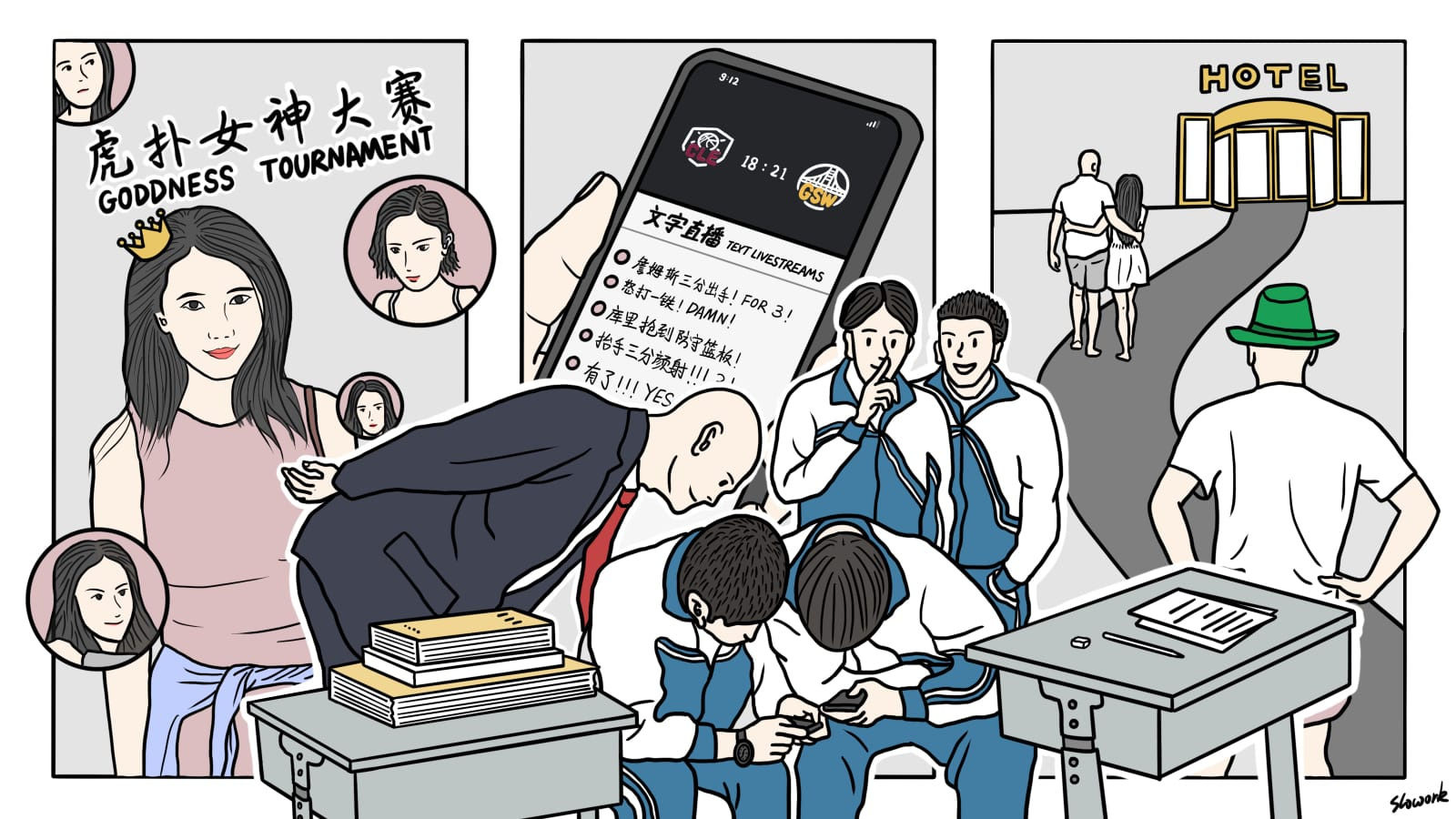


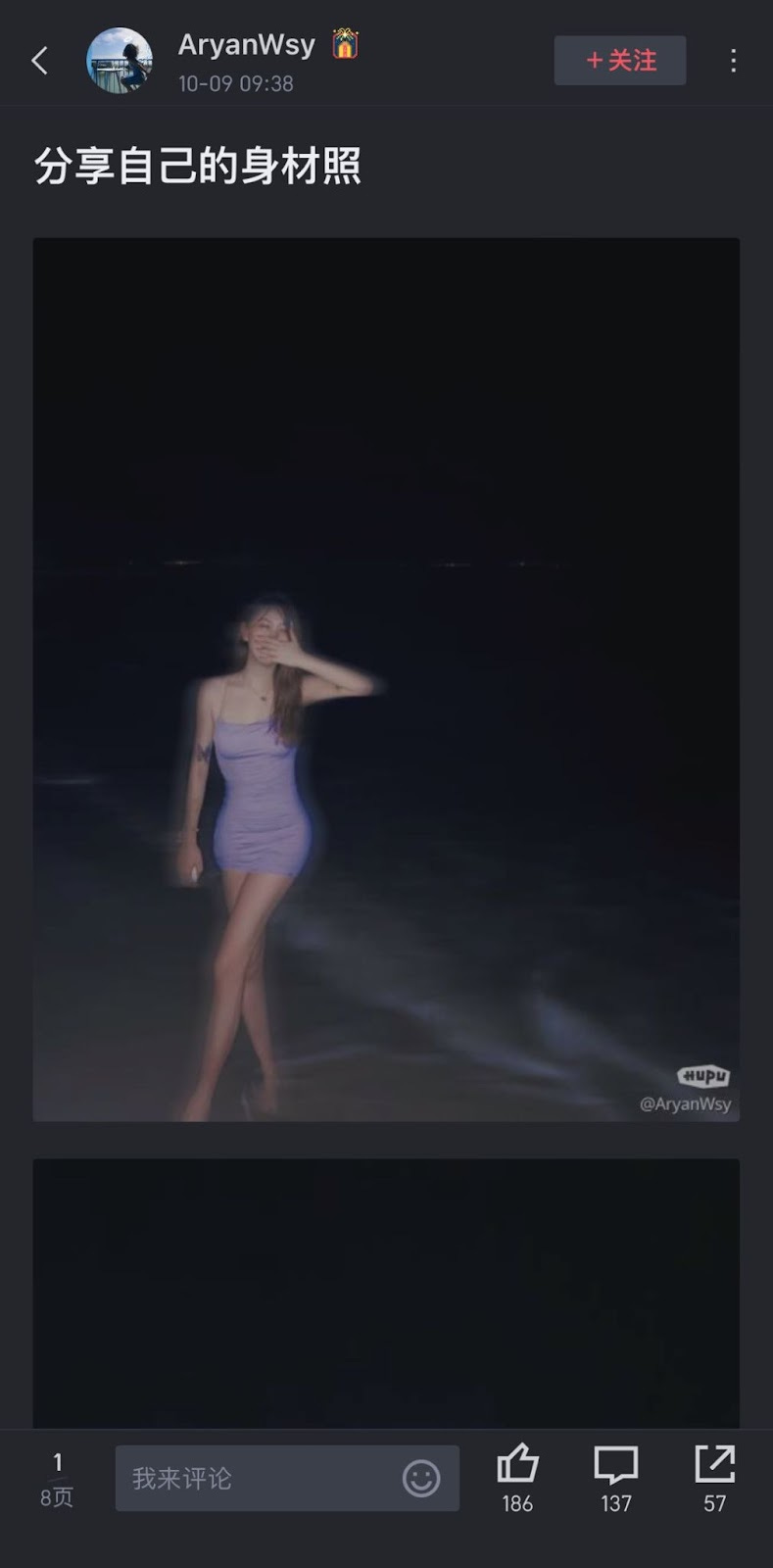




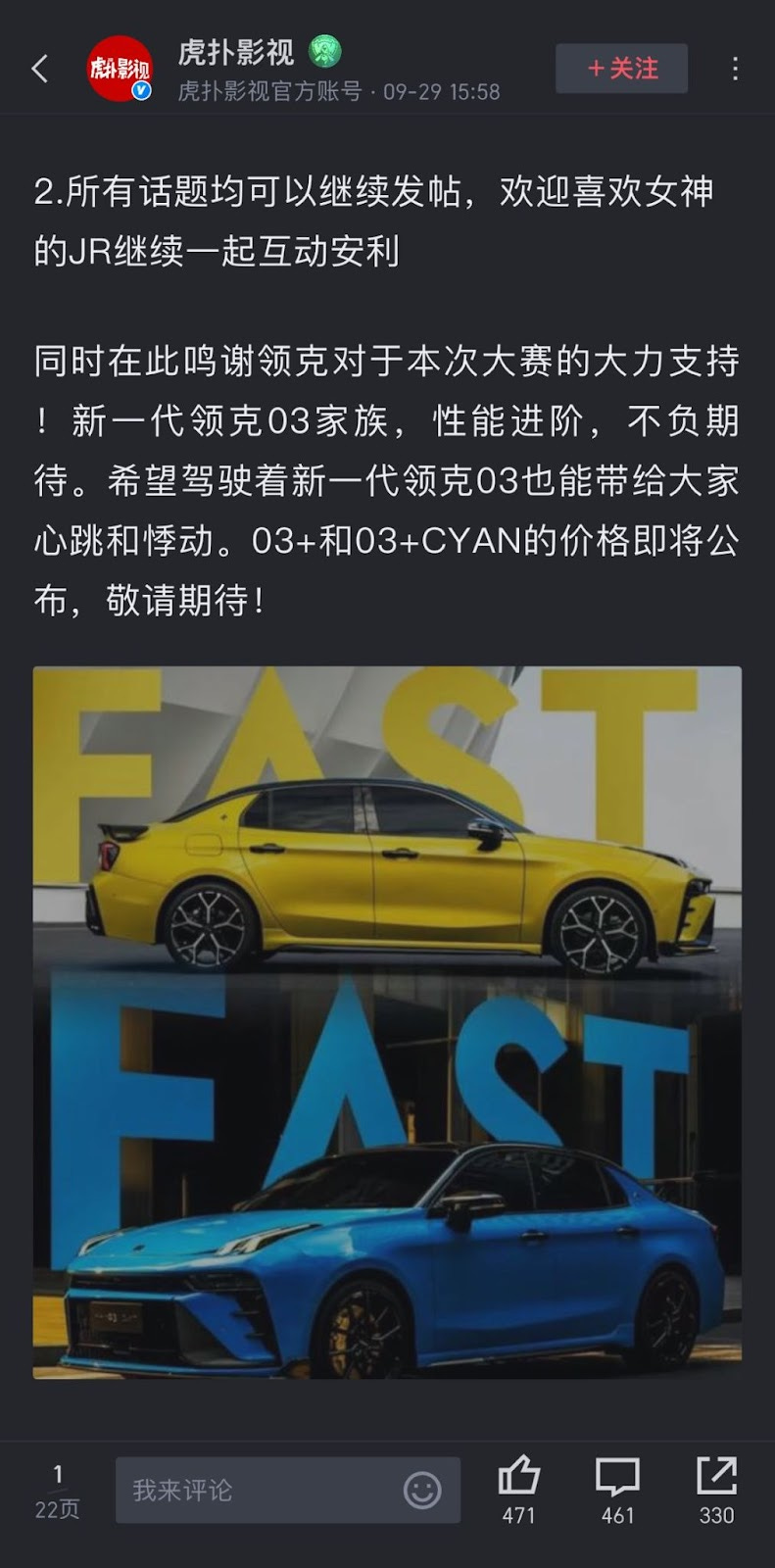

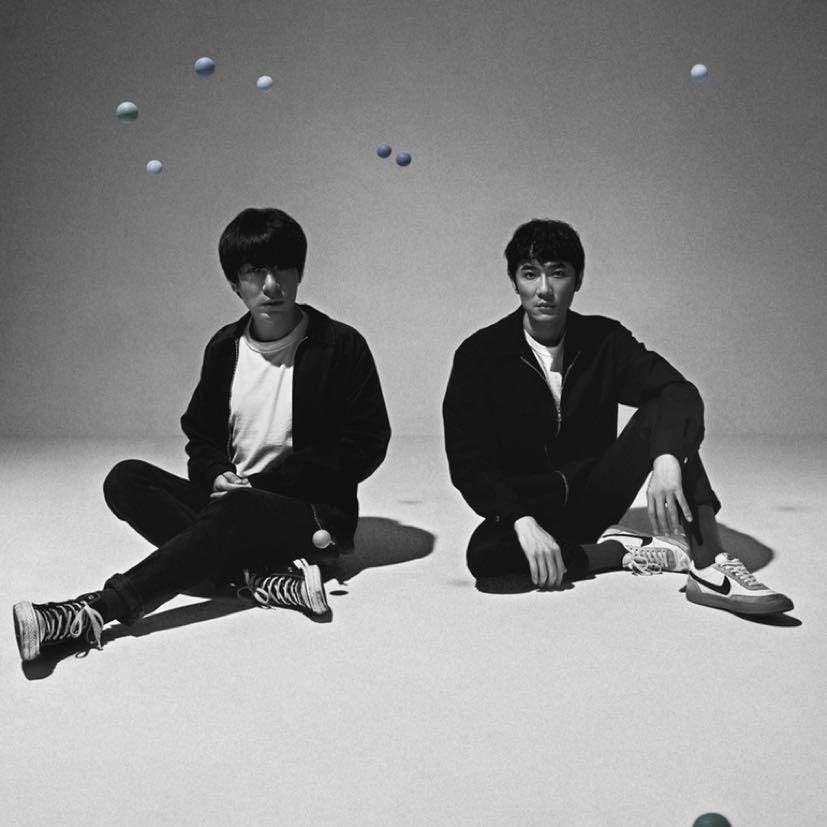
Nationalism is bad? Ah I see it’s those liberal boba China liberals who are trying to use American (China’s enemy) lingo to do work a la Wang Jingwei , who was also sort of post racial, with the Japanese!